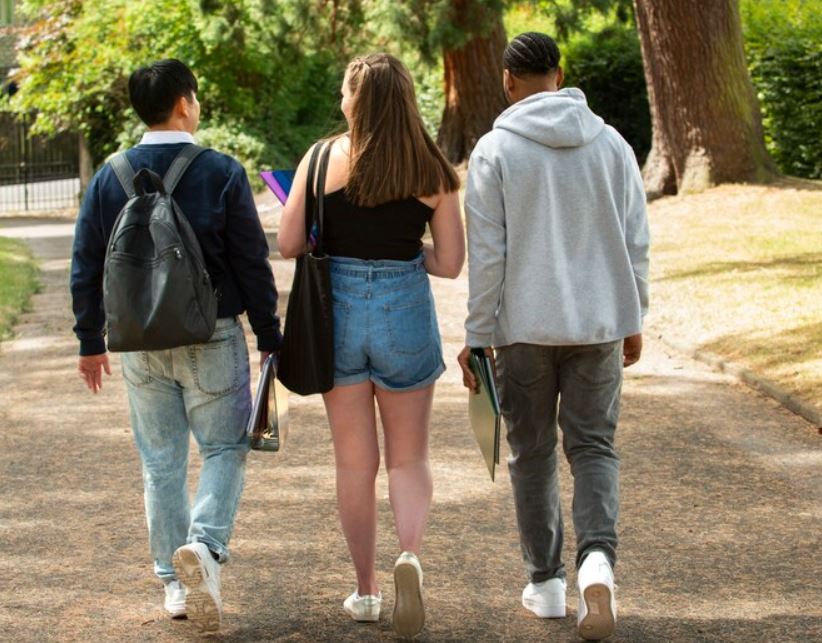By Nikolina Koulouri,
The end of the school year often brings a sense of relief and anticipation for the majority of the students. Usually, friend groups say goodbye with casual promises to meet up over the summer, continue group chats, or definitely hang out soon while on vacation. But, as the weeks pass, many of these friendships start to feel more distant. Some conversations become more awkward, while others stop altogether. This shift usually happens every summer and it can feel confusing, especially for teenagers. But when the routine disappears, so do many of the shared environments such as school classes and activities, which held certain friendships together.
Friendships built in school classes create an environment that naturally brings people into each other’s lives. Shared classes and team assignments, lunch breaks, after-school activities, and even mutual complaints about assignments or teachers provide common ground for connection and communication. These interactions are daily, excluding the weekends, and require little effort to maintain. Once school ends, however, that shared context disappears. Without those common aspects in their lives, many friendships begin to gradually fade. Not necessarily because they weren’t genuine, but because they were closely tied to the school setting. Without it, the connection doesn’t always hold, due to many factors.

Summer changes the pace of everyday life. Some people travel while others work or focus on personal goals, and many simply take time to rest from a tiring and overwhelming school year. The days are less structured, and as routines change, so do communication patterns. Some friends may pull away unintentionally, not necessarily because they are upset with the other person, but because their lives have moved into different rhythms. This shift is often subtle. Texts may slow down and many times group chats of school projects go silent, since there is no shared goal. It can be surprising, especially when there was no specific issue that caused the distance, other than just time and space.
It’s important, especially for teenagers to recognize that not every school friendship is built to last beyond the classroom. That doesn’t mean those friendships weren’t real. Some connections are meaningful in the moment but aren’t designed to continue once the circumstances change. Needless to say, there is definitely a difference between outgrowing a friendship and ending one badly. Some relationships naturally fade without drama or conflict. This can be disappointing, but it is also part of personal growth.
On the other hand, friendships that do continue over the summer often require a more conscious approach and effort. Without daily school contact, maintaining a connection involves intentional actions such as sending a message, making plans, or checking in from time to time. These small efforts can strengthen a friendship, showing that both people are interested in staying connected, despite summer break. There are also cases where only one person is reaching out and the conversation feels one-sided, it might be a sign that the friendship has run its course. Sometimes, people grow in different directions, or their interests change. This is a natural part of adolescence and early adulthood.

A school friend who made you laugh during tough classes or supported you during a stressful week full of exams, offered something valuable even if the relationship doesn’t continue into the summer or beyond. Temporary friendships can provide support, belonging, and positive experiences during specific periods of time, when it is needed. The fall off the friendship doesn’t exclude their impact. It can be tempting to assign blame when a friendship fades. However, most of the time, it’s not about someone doing something wrong but about changes in context, lifestyle, or interest. Understanding this can help avoid unnecessary tension or hurt feelings.
Summer can be a useful time to reflect on social connections. It’s also an opportunity to strengthen the relationships that truly matter and to allow others to drift without guilt. In many cases, when the school year returns, some friendships pick up right where they left off. Others may remain distant. Both outcomes are normal and show growth and change, not always bad. Social dynamics are fluid, especially during periods of transition. Friendships will come and go, and each one, whether lasting or brief, contribute to personal development and understanding that not everything is able to be controlled by us. Sometimes we just have to accept the situation and compromise to the new context without feeling guilty that something was not done right.
References
- Keep in Touch: A Guide to Maintaining Friendships in the Summer. Where I can be me! Available here
- Friendship Breakups: How High School Students Handle Social Changes. The Chronicle. Available here




